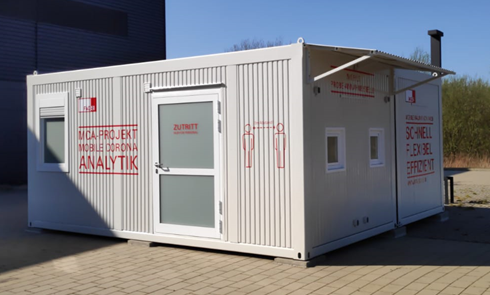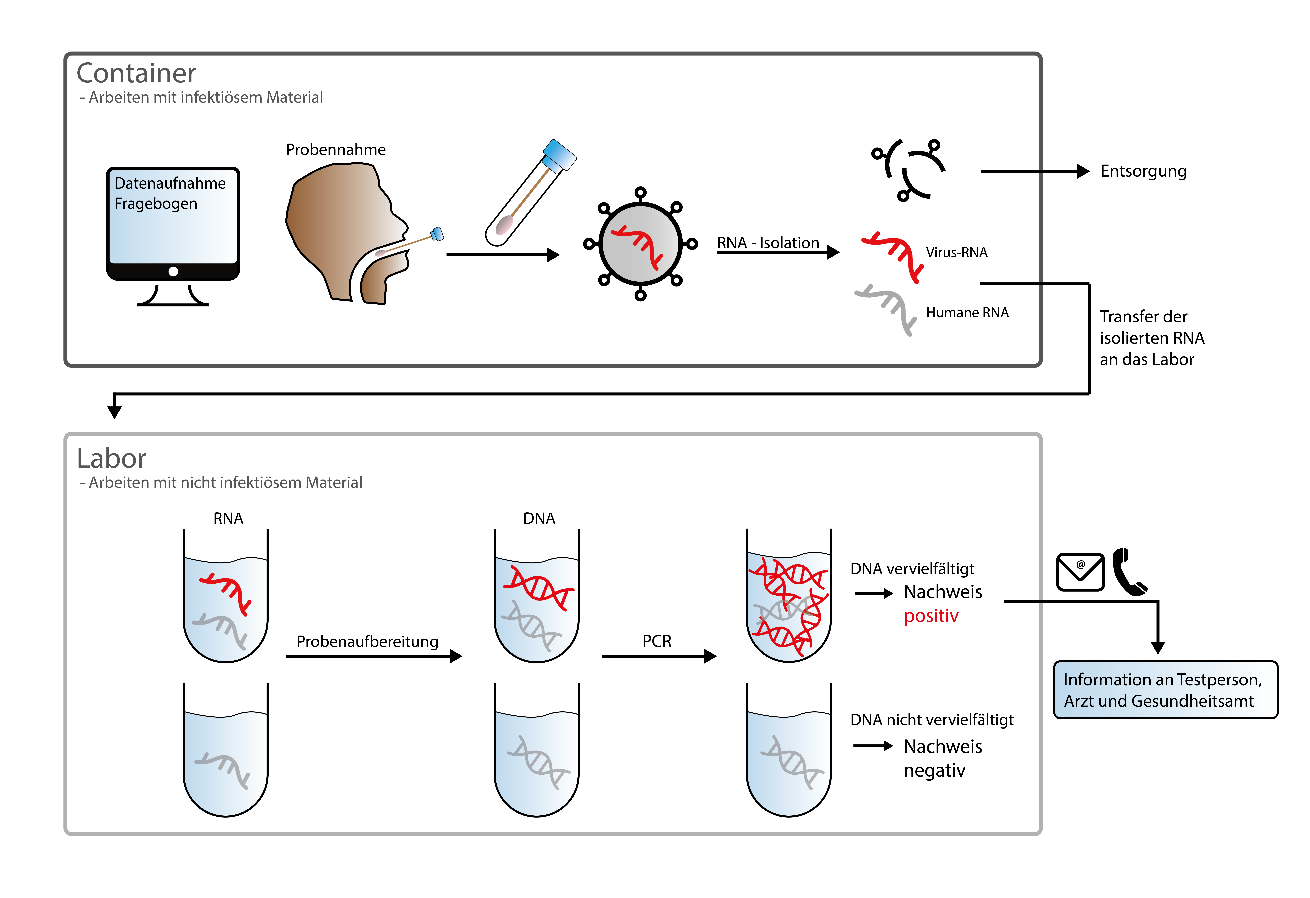
Corona: Fast, reliable and efficient testing
The infection control measures of the last few weeks have so far prevented the rapid spread of the Sars-CoV2 virus in Germany. In order to further contain the virus, researchers from Hanover want to establish an efficient and cost-effective test system: mobile corona analysis (MCA). This system will be used to test large numbers (more than 1000 per day) of system-relevant people. Leibniz Universität Hannover (LUH) is coordinating the interdisciplinary research consortium, which also includes the Lower Saxony Centre for Biomedical Engineering, Implant Research and Development (NIFE) and the Hanover University of Music, Drama and Media (HMTMH) with experts in journalism and communication. The Lower Saxony Ministry of Science and Culture is funding the model project.
How is the screening going?
The process comprises three steps: In mobile test centers (converted shipping containers), medically trained personnel perform a throat swab on the test subject. The genetic material (RNA) of the sample is isolated directly in the container and then transported to external laboratories as non-infectious material. In the laboratory, the RNA is converted into DNA and the genetic material is amplified by PCR. If the DNA from the corona virus can be amplified, the detection of the virus is positive. Positive results from screening are confirmed diagnostically by certified laboratories and reported to the local health authority. The test person is requested to go into domestic quarantine.

Mobile Teststation
With the help of an interactive database and a digitally supported laboratory infrastructure, the samples can be tracked throughout the entire process. Individual data on risk exposure and concomitant diseases are also recorded digitally – taking into account ethical and legal aspects from consent to the processing of personal data. L3S member Prof. Dr. Holger Blume and his colleagues at the Institute of Microelectronic Systems have developed the EDP concept – from data input, data storage and encryption to the planning of the complete hardware.
In the two-stage system, the corona virus can be detected within six to eight hours. Until now, several days have been necessary for this. Parallel testing for influenza viruses can be carried out in order to effectively allocate and stratify patients. Medical personnel can be tested regularly and can also be reassigned when in contact with corona patients. In the case of persons who test positive and report this to the public health department, a serological immunity test will also be carried out during the course of the project. For production companies, the test could enable a faster and safer resumption of production and thus help to minimize economic damage. In addition, the mobile test centre will make an important contribution against overloading the clinics and help to reduce the risk of transmission in hospitals.
The project aims to establish a model scalable infrastructure that can be quickly transferred to other locations in Lower Saxony and beyond. In the first phase, two model locations at NIFE/MHH and LUH are initially planned, with further locations being successively added in the course of the project. In the first phase, about 100 persons per day and test site can be tested; in the medium to long term, 200 tests per day are planned.

The MCA test procedure
Contact

Prof. Dr. Holger Blume
L3S member Holger Blume is head of the Department of Architectures and Systems at the Institute of Microelectronic Systems (IMS-AS) at LUH.

Prof. Dr. Stefanie Heiden
Stefanie Heiden is head of the project “Mobile Corona Analytics” and professor at the Institute for Innovation Research, Technology Management & Entrepreneurship.

Prof. Dr. Thomas Scheper
Thomas Scheper is managing director of the Institute of Technical Chemistry at Leibniz Universität Hannover and deputy project manager of “Mobile Corona Analysis”.


